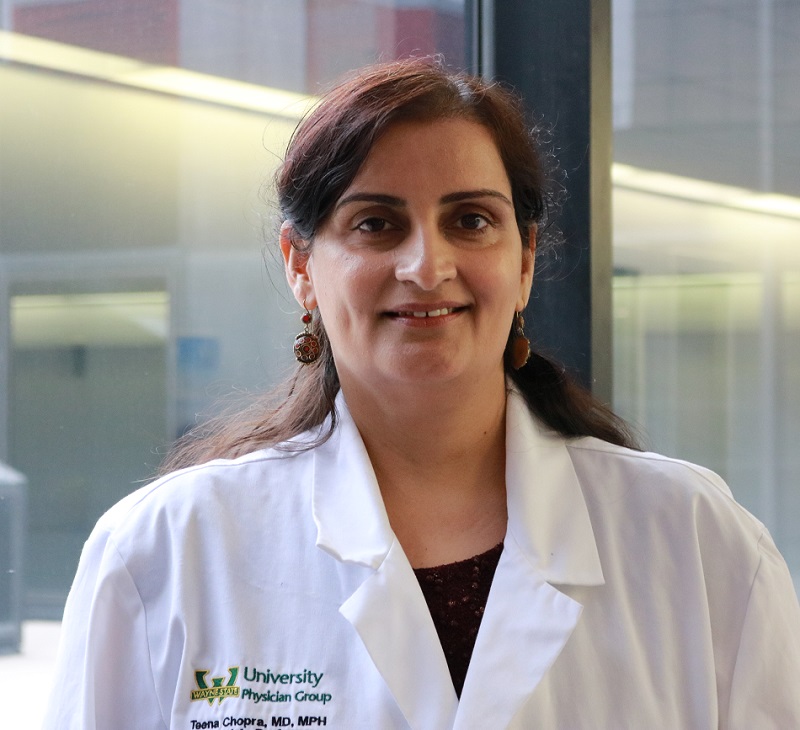A hospital-based infection control team led by Teena Chopra, M.D., M.P.H., a Wayne State University School of Medicine professor of Infectious Diseases and corporate medical director of Infection Prevention Hospital Epidemiology and Antibiotic Stewardship at WSU and the Detroit Medical Center, has published news of a concerning trend in older, severely ill patients testing positive for COVID-19 -- they also tested positive for Clostridioides difficile, sometimes called C. diff or CDI.

“This is the first report highlighting COVID-19 patients who presented with diarrhea and were found to have both C. diff and diarrhea as a co-infection. Most of these patients were very sick and had a higher mortality,” Dr. Chopra said. “COVID-19 can present as diarrhea, and a lot of these patients are getting unnecessary antibiotics. We always think of C. diff when we have patients who have diarrhea, and now we have to think of COVID-19 in these patients, too.”
CDI is a bacteria that causes life-threatening diarrhea. It is usually a side-effect of taking antibiotics, according to the U.S. Centers for Disease Control and Prevention.
The case of one COVID-19 patient who required three fecal transplants and later died triggered Dr. Chopra to have her team look at all COVID-19 patients treated at DMC hospitals. What they found is published in Emerging Infectious Diseases, a journal of the CDC.
“Clostridioides difficile in COVID-19 Patients, Detroit, Michigan, USA, March–April 2020,” was accepted on first submission, and reports an observation of CDI as a co-occurrence or consequence of overuse of antibiotics in COVID-19 patients.
Dr. Chopra and team conducted a clinical surveillance review of CDI for all laboratory-confirmed COVID-19 patients treated at any DMC hospitals March 11-April 22. The cohort mainly included elderly, predominantly female patients. The rate of CDI was 3.32 per 10,000 patient-days January through February 2020, which increased to 3.6 per 10,000 patient-days March through April 2020.
In the letter, they describe nine patients with severe acute respiratory syndrome coronavirus 2 and C. diff. Both infections can manifest as digestive symptoms and merit screening when assessing patients with diarrhea during the COVID-19 pandemic.
The cases highlight the importance of judicious use of antibiotics for potential secondary bacterial infection in patients with COVID-19. Antibiotics are known to have unintended consequences, such as C. difficile infection, Dr. Chopra said. All nine patients received antibiotics; the median duration of antibiotic use before PCR-positive CDI was five days.
“All patients in our cohort were elderly, an age group at higher risk for complications from overuse of antibiotics, such as adverse events, antibiotic resistance and concomitant infections like CDI. Secondary infections on top of CDI can increase the risk for death in patients with severe COVID-19; in this cohort, four patients died and one was discharged to hospice,” she said.